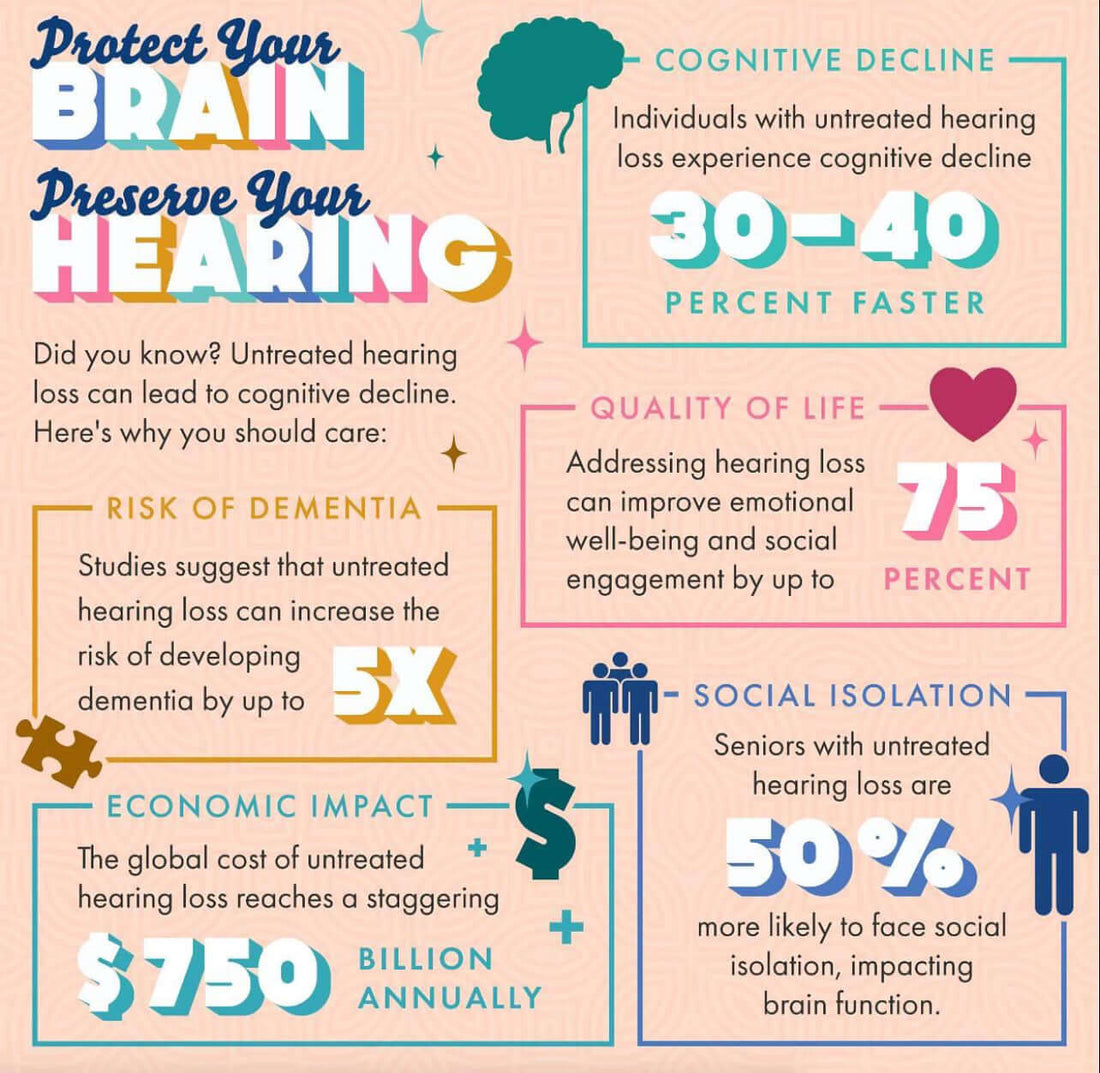
Protect your Brain...Preserve your Hearing
Did you know that hearing loss isn’t just about difficulty hearing sounds? It can have significant effects on the brain as well. Here’s how:
Cognitive Decline: Research suggests that untreated hearing loss can accelerate cognitive decline. The brain works harder to process sounds, which can detract from its ability to focus on other cognitive functions like memory and problem-solving.
Social Isolation: Struggling to hear clearly can lead to social withdrawal and isolation. This lack of social engagement can contribute to feelings of loneliness and depression, which are known to impact brain health negatively.
Brain Structure Changes: Studies have shown that prolonged hearing loss can lead to physical changes in the brain’s structure. The auditory cortex, responsible for processing sound, may shrink or reorganize due to lack of stimulation.
Increased Risk of Dementia: Some studies suggest that untreated hearing loss is associated with an increased risk of dementia. The exact link is still being researched, but it’s believed that cognitive overload and social withdrawal may play a role.
Mental Fatigue: Straining to hear in noisy environments or during conversations can lead to mental fatigue. This constant effort can overwhelm the brain and affect its overall efficiency over time.
Early detection and intervention are crucial in mitigating these negative effects. If you or a loved one experience signs of hearing loss, call Doc Side Audiology for a professional evaluation and consider hearing aids or other assistive devices.
Taking proactive steps can help preserve brain health and improve overall quality of life.
For more blogs and information on hearing aid jewelry and retention products, you can visit us at www.deafmetalusa.com
